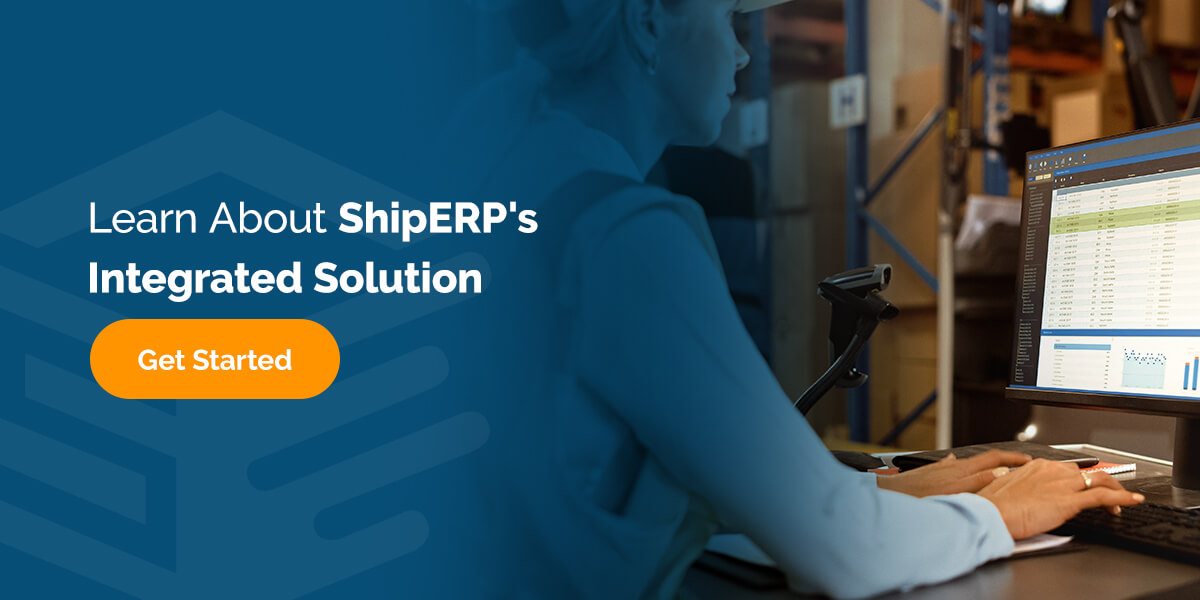
S/4HANA vs. ECC | ShipERP
Businesses need the right tools to thrive in a dynamic, fast-paced environment. They must adapt and respond to ever-changing market trends and customer demands. Luckily, System Applications and Products (SAP) can help companies meet fluctuating demands.
What is S/4HANA? For starters, SAP is a market leader in enterprise resource planning (ERP) software. It caters to organizations of all types and sizes. S/4HANA uses in-memory computing and embedded analytics and insights. This helps companies make their daily processes more efficient. That way, they can better serve their customers.
Likewise, SAP ECC has been a leading ERP software solution for decades. It allows companies to make important decisions based on real-time data. In this handy guide, we'll break down the differences between ECC and S/4HANA. We'll also explore their pros and cons. Let's dive in!
What Is SAP S/4HANA?
Short for “SAP Business Suite 4 SAP HANA,” SAP S/4HANA is an ERP software package released in 2015. Businesses can use it to perform transactions and analyze data in real-time. SAP S/4HANA can cover day-to-day operations, such as:
- Order-to-cash
- Plan-to-product
- Procure-to-pay
- Request-to-service
S/4HANA is part of SAP's strategy for helping companies undergo digital transformation. They can create new business procedures or change existing ones. Adjusting these processes can help them improve flexibility and responsiveness. In turn, they can better meet their customers' demands.

Advantages of SAP S/4HANA
SAP S/4HANA integrates technologies like artificial intelligence (AI), machine learning, and automation. These capabilities help businesses improve their speed, productivity, and efficiency. Here are the advantages of S/4HANA over ECC:
- Real-time data analysis: SAP S/4HANA lets you analyze large amounts of data in real-time. Working with large data sets from one interface helps you save time. You can also reduce operational and hardware costs. Additionally, real-time business data insights enable faster decision-making. You can rethink and reinvent procedures as needed.
- Personalized insights: This machine learning solution is a valuable tool for behavioral insights. It can generate expected outcomes based on customer interactions. You can use these behavioral insights to personalize your billing and collection processes.
- Simple-to-use design: S/4HANA incorporates a convenient, accessible design displaying all necessary functions. You can access these functions from desktops, tablets, and mobile devices.
- Embedded cybersecurity: SAP S/4HANA has strong, extensive security capabilities. These help protect customers' confidential business data.
Disadvantages of S/4HANA
As groundbreaking as SAP S/4HANA is, it does have a couple of minor drawbacks, like:
- Limited compatibility: This system is only compatible with the SAP HANA database. Using a third-party database like Oracle in your SAP ECC system may put you at a disadvantage. You'll need to remove unsupported add-ons if you decide to use SAP S/4HANA. You could also experience some disruptions when migrating to a new system. Planning and preparing for this change can help prevent such occurrences.
- Cost: Another disadvantage is the investment costs of converting to the new software. Even so, the speed, efficiency and other benefits can compensate for this.
- Learning a new system: Converting to SAP S/4HANA means relearning the system and its features. This goes for any new software. Of course, the easy-to-use structure suggests it shouldn't be too difficult to pick up.
What Is SAP ECC?
Now that you know the basics of SAP S/4HANA, let's move on to SAP ECC. Short for “SAP ERP Central Component,” ECC is SAP's legacy system. Launched in 2004, it operates on third-party databases, like IBM DB2 and Oracle.
SAP ECC is the foundation of the SAP Business Suite. Business Suite also includes Supply Chain Management (SCM) and Customer Relationship Management (CRM).
The central component integrates real-time digital data from different business areas. This information gives decision-makers a comprehensive view of the company's operations. For instance, let's say a company makes a sale in one business area. ECC updates the information in other affected areas, like materials and inventory.
Medium-to-large companies often use ECC. The system has several components that can handle specific business tasks. Modules can interact with each other to form an integrated solution. This solution can accommodate many industry sectors.
Advantages of SAP ECC
Some benefits of SAP ECC include:
- Flexibility: SAP ECC is modular. This makes it easy to configure the platform to your business's unique needs. These could include finances, logistics, warehousing, human resources (HR), or other areas. Additionally, ECC is compatible with custom or third-party platforms, like business messaging applications.
- User familiarity: ECC has been around for years. Many companies are familiar with this software and its features. It includes common modules like HR, finances, logistics, and warehousing. ECC integrates modules like materials management, production planning, and plant maintenance for manufacturers.
Disadvantages of SAP ECC
Here are some drawbacks to SAP ECC:
- Complicated changeover: ECC's flexibility also brings some slight complications. There are various interactions between landscape components. This means a change to one part will affect the others. Test your landscape and plan changes like add-ons, enhancements, configurations, and upgrades. That way, you can avoid disrupting critical business functions. This also applies when switching over to SAP S/4HANA.
- User experience difficulties: ECC has a more outdated user experience than S/4HANA. While S/4HANA only runs on HANA, ECC runs on different databases like DB2, Oracle, SQL Server, and SAP MaxDB. One database may be easier and more convenient to use.
- Function limitations: S/4HANA can handle advanced technologies. These include machine learning, AI, embedded analytics, and robot process automation. These technologies are unavailable in SAP ECC. S/4HANA has more deployment options than ECC. These include public, private, hosted, and hybrid cloud environments. In most cases, ECC is only deployed on-premise. You can host it on the public cloud, but there isn't a fixed public cloud edition.
- Phaseout: It's worth noting that SAP ECC is on its way out. SAP plans to stop supporting ECC by 2027. The company is encouraging SAP ECC to S/4HANA migration.
Learn About ShipERP's SAP-Integrated Solution
ShipERP helps small and large businesses integrate multi-carrier shipping within their ERP. That way, they can skip the need for third-party intervention.
Adding our multi-carrier shipping software to your ERP has many benefits. You can process orders, track shipments, and get delivery proof from connected carriers. This software automates common processes to decrease manual labor, saving valuable company time. Additionally, our standalone system — ShipERP Cloud shipping software — doesn't need SAP.
We offer configurable software solutions and 24/7 customer support. Let us help you simplify your operations. Contact us today to learn more about what our integrated solution can do for your business!

